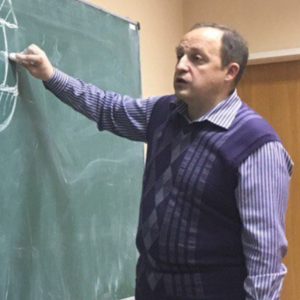Теоретическая фонетика английского языка (803492), страница 39
Текст из файла (страница 39)
Hannah call themNear-RP southern.There is one regional type of RP which is widely discussed now underthe name "Estuary English" which is very close to "Advanced RP" or"Near- RP accent".It is often spoken by young people who want to avoid the "snobbish"accent and at the same time to sound trendy and fashionableFigure 16'JYpes of English RP(Received Pronunciation)National RPrefined, conservativeOxford ~ng1ish.King's ~nglishgeneralmainstream.BBC English[:=000Estuary Englishnear-RPaccentII otherRPregionalaccents166Chapter VI. Social and Territorial Varieties of English6.3.3. Changes in the standardAs was stated above, changes in the standard may be traced in the speechof the younger generation of native RP speakers.
These changes may affectall the features of articulation of vowel and consonant phonemes and alsothe prosodic system of the language.Considerable changes are observed in the sound system of the presentEnglish, which are most remarkable since well-known Great VowelShift in the Middle English period ofthe language development. It is a wellestablished fact that no linguistic modification can occur all of a sudden.The appearance of a new shade in the pronunciation of a sound results inthe coexistence of free variants in the realization of a phoneme. The choicebetween permissible variants of [w] or [A\] in wh-words is an illustration ofwhat is meant by the process of variability and free variants.
In Russian weobserve free variants of the pronunciation of the words of 9Hep2UJl, meMntype: non-palatalized and palatalized versions of [H] - [H'] andThe degrees of variability are different. The most perceptible and stablechanges are described in the works of British linguists and have been investigated by Russian phoneticians. The RP of recent years is characterizedby a greater amount ofpermissible variants compared to the "classical" typeof RP described by D.
Jones, L. Armstrong, I. Ward.The phenomenon is significant both from the theoretical and practicalviewpoint. The variability concerns mainly vowels. Most of English vowelshave undergone definite qualitative changes. The newly appeared variantsexhibit different stability and range.The qualitative distinctions manifest new allophonic realizations of thevowel phonemes.Changes in Vowel Quality1. According to the stability of articulation1) It is generally acknowledged that two historically long vowels [i:], [u:]have become diphthongized and are often called diphthongoids; the organsof speech slightly change their articulation by the very end of pronunciation, becoming more fronted.
Ch. Barber tries to draw a parallel with theGreat Vowel Shift which took place in Middle English, zation was just one part of a complete change of pattern in the long vowels. He claims that there is some resemblance to this process today and other phonemes may move up to fill the places left vacant. 6.3. English-based Pronunciation Standards of Eng1ish1672) There is a tendency for some ofthe existing diphthongs to be smoothedout, to become shorter, so that they are more like pure vowels.a) Thl" is very often the case with [el], particularly in the word final powhere the glide is very slight: [ta'del], [seI], [mel].b) Diphthongs [aI], [au] are subject to a smoothing process where theyare followed by the neutral sound [a]:[taua], [fala]Conservative RP:General RP:[taa], [faa]Advanced RP:[ta:],[fa:]c) Also diphthongs [Ja], [ua] tend to be levelled to [J:].
Thus the pronunciation of the words pore, poor is varied like this:older speakers:middle-aged speakers:[pJ:], [pJ:]younger speakers:It should be mentioned, however, that this tendency does not concern the diphthong [Ia] when it is final. The prominence and lengthshift to the glide, this final quality often being near to [A]: dear [dla] [dIA].2. According to the horizontal and vertical movement of the tongueVery striking changes occur in the vowel quality affected by the horizontal movement of the tongue. In fact the general tendency is marked by thecentering of both front and back vowels:the nuclei of [aI], [au] tend to be more back, especially in the maleofthe pronunciation;b) the vowel [ce] is often replaced by [a] by younger speakers: [hcev] [hav], [cend] - [and];c) the nucleus of the diphthong [3U] varies considerably ranging from[ou] among conservative speakers to [3U] and [au] among advancedones:Conservative RP:Advanced RP:_______This tendency is so strong that the transcription symbol has beenchangedBack-advanced vowels [A], [u] are considerably fronted in advancedRP: but [bAt] - [bat], good [gud] [gad].There is a tendency for all short vowels to be produced nearer the centre of the mouth, that is to move towards [a] especially in unstressed position.168Chapter VI.
Social and Territorial Varieties of EnglishCentering of short vowels:[a][<e][u]~[a]/ [e][A] /~[I]Vertical changes may be traced in the following:final [£] and [I] may be very openbetter ['beta] > ['bet3]city['sItr]> ['sIta]b) [e] [;):] tend to be closer in "advanced" RPdead [ded] > [ded] as in Russian ".z:\em"bought [b;):t] > [bu:t]c) the nuclei ofdiphthongs [el, Ea, ;)a, ua] become more open when thesephonemes are being levelled, particularly the diphthong [£a] which is characterized by a more opening of the nucleus:careful ['kEaful] > ['kdul]The first element of the diphthong [ua] can be lowered considerablypoor [pua] > [po"].3. Combinative changesIt i,s general knowledge that when sounds are in company they influence each other. These changes are called combinative.
They take placeonly in certain phonetic contexts. In a diacritic study, however, there is nosharp boundary between isolative and combinative changes.I) Changes in [j + u:], [I + u:]. Words like suit, student, super may be pronounced either [sju:t] or [su:t], ['stju:dant] or [,stu:dant], ['sju:pa] or ['su:pa].The tendency is for middle-aged and younger speakers to omit the [j] after[s] before [u:]. Word-internally [j] tends to be retained as in assume [asju:m].There is also fluctuation after [I]: word-initially lute [Iu:t] is normal, but it ispossible to pronounce [J'lju:3n] in illusion, for example. These recent developments in combinative RP changes bear remarkable resemblance to American Standard pronunciation.2) Change of [;):] to [u] before [f, s, 9]. Where orthographic "0" occursbefore the voiceless fricative [f, s, 8] older speakers pronounce the vowel [;):]:loss [b:s].
This pronunciation is currently dying out in RP and being replaced by [u]: [Ius].Words like salt and fault still may be pronounced with6.3. English-based Pronunciation Standards of English1694. Changes in lengthIt is an accepted fact that English vowels vary in length according tothe phonetic context - the consonant they are followed by (voiceless,voiced), syllabic border, the degree of stress, the types of nuclear tone andso on.Actually nowadays there are changes in vowel length that are influenced by other factors.
There is, for example, a strong tendency for theso-called short vowels to be lengthened, and it is interesting to note thatthis lengthening can be heard sporadically in many words in any position.The lengtheningof[r] is often heard in big, his, is; of[u] ingood; [A] income. It should also be mentioned that [I] is often lengthened in the finalsyllable, i. e.
very, many: ['veri:], ['meni:].Short vowels fe, <e] are also very frequently lengthened in yes, bed,men, said, sad, bad, bag and so on. This tendency has considerably increased in the past few years.Changes in Consonant Quality1. Voicing and devoicing. As is well known, there is no opposition offinalRP cons.Onants according to the work of the vocal cords. They are all partially devoiced, particularly stops. Such dev.Oiced sounds are clearly heardafter l.Ong vowels and diphthongs as in deed: [di:d]. However, these partlydev.Oiced c.Onsonants are never identical with their voiceless c.Ounterparts,because the latter are pron.Ounced with strong breath-f.Orce.This tendency for devoicing now seems to be on the increase. A,> s.O.On asthe opp.Osition ofvoi.ced voiceless is neutralized in the final position, thefortis/lenis character of pronunciati.On has become the relevant feature ofconsonants.The v.Oiced/voiceless distinction of the minimal pairs [sed] - [set],[dug] [duk] may seem t.O be lost.
Actually it does not take place. The weakconsonants are never replaced by their voiceless counterparts, they neverbecome strong, the stops Ib, d, gJ, though devoiced, never acquire aspiration. More than that. The interrelati.On of final consonants and the preceding stressed vowels is very close.He saw his cap. - He saw his cab.Describing the positional alloph.Ones .Ofthe English stops A. C. Gimsoncharacterizes the initial lenis [b, d, g] as partially devoiced, finallenis [b, d, g]as voiceless.170Chapter VI.
Social and Territorial Varieties of EnglishThe sound [t] in the intervocalic position is made voiced:betterletter['beta]f'leta1['Ieda]2. Loss of [h]. In rapid speech initialto die out from the language. Even most highly educated people subconsciously drop it completely. So instead of: She wants her to come [Ii" ""wnntsta JAm] one hears: ti: wnnts 3 ta ,kAm].
















